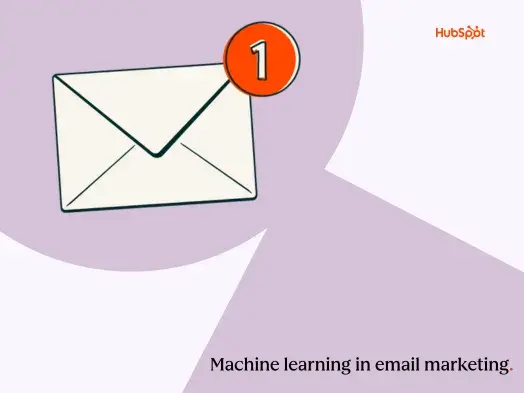A couple years ago, I really got into meditation.
I am about as high-strung and type-A as they come. Until then, I hadn't bothered checking in with my body because my mind was too busy planning, thinking, and creating hypothetical problems I could then hypothetically solve. (Anyone relate?)
So I took a month-long, online meditation class. I learned how to focus on my six senses, and how to let my breathing become an anchor to which I returned everytime my mind wandered.
After the class, I signed up for Headspace. And I still love Headspace – it's an app with tons of quick, easy meditation courses that I take regularly.
But when I found out AI chat support was stepping into the meditation space, I was intrigued. Can AI somehow supercharge a meditation app, making meditation and therapy both more accessible?
Here's what I found when I tested Meditopia for two weeks.
For One … AI Does NOT (Yet) Take the Place of Therapy
One of the most exciting features of Meditopia is its “SOUL feature,” which is powered by OpenAI’s ChatGPT and aims to provide users with on-the-go mental health advice.
According to Mental Health America (MHA), 42% of adults with a mental illness cannot afford the necessary care they need. Given the high costs of therapy, there's a large barrier to entry that limits who can benefit from it.
This is one of the most promising opportunities for AI: The ability to curate and deliver high-quality, personalized advice to people who can't afford more traditional therapy services.
Unfortunately, it‘s looking like there’s still a long way to go.
As shown in the images above, I began talking to Meditopia SOUL about feeling stressed and overwhelmed.
I'd hoped it would quickly revert to some advice that could help me better manage my stress, but instead, the AI chatbot consistently asked too many follow-up questions, including:
- Could you share what has been contributing to your feelings of stress lately?
- How do you usually prioritize tasks when confronted with a situation like this?
- How does making a to-do list affect your stress levels?
- How do you determine which tasks need your immediate attention?
- What can you do to carve out space for you to concentrate on this blog post?
- How has time blocks impacted your ability to work efficiently and manage stress?
I felt more stressed after chatting with AI, not less.
A good therapist knows to ask questions and listen thoughtfully, are well attuned with a patient's needs and can offer wisdom or guidance in-between their questions.
In other words: Real therapy shouldn't feel like an interrogation, and this certainly did.
Suggesting Content Is Where AI's Strengths Currently Lie
Fortunately, there‘s another option when conversing with Meditopia’s AI chatbot. Rather than having a (seemingly endless) back-and-forth conversation, you can ask the chatbot to suggest content, instead.
After I asked the chatbot to suggest content to help me manage my overwhelm, I was pleasantly surprised by the results. AI has proven to excel at content curation, and this is no different.
In particular, it was able to offer me quick-and-easy meditation practices.
I started with one titled, "Feeling of not being able to keep up with anything." It was an 11-minute session that left me feeling grounded and calm.
The meditation session reminded me to feel my body firmly planted in my seat; and it encouraged me to shift my thinking from, "I didn't do enough,“ to ”I did everything I could, and I'm doing the best I can.”
As the meditation came to an end, the narrator reminded me: "Notice that what stresses you out is not the ebb and flow of life itself; but rather the voice in your head, making meaning of each ebb and flow and creating the urgency and stress you feel. Step back and see that voice as separate from you — and separate from life."
It was exactly what I needed to feel re-engaged and re-invigorated for work. And, while AI might not have led the meditation session itself, it did do the heavy lifting of finding the exact right meditation for me to manage my stress.
From there, I felt empowered to ask Meditopia SOUL for more content recommendations based on my needs. Each morning, I'd ask it something like "Are there breathing exercises you'd recommend to help feel more grounded in my body?"
Which led me to some of my favorite meditation courses, like the “Breath” course.
All in all, I will say this: Meditation is hard work. It's about sitting with your breath – which is usually very boring and non-stimulating, and difficult to find the motivation to make time for.
And the reason it‘s hard work is the same reason AI can’t solve meditation for you: It requires you to be in your body.
In fact, meditation is the very opposite of AI. Its focus is breath and life and presence, all of which AI cannot mimic.
But AI can make the process of finding the right meditation courses for you easier. And that, in itself, is half the battle.
Artificial Intelligence


![Download Now: The State of AI [Free Report]](https://no-cache.hubspot.com/cta/default/53/18762e80-6017-4c1b-801b-e55abae588fe.png)


![AI email subject lines that drive 3x more revenue and actually convert [+ exclusive insights]](https://53.fs1.hubspotusercontent-na1.net/hubfs/53/ai-email-optimization-1-20251014-4500151-1.webp)






-1-20250905-2237709%202.webp)